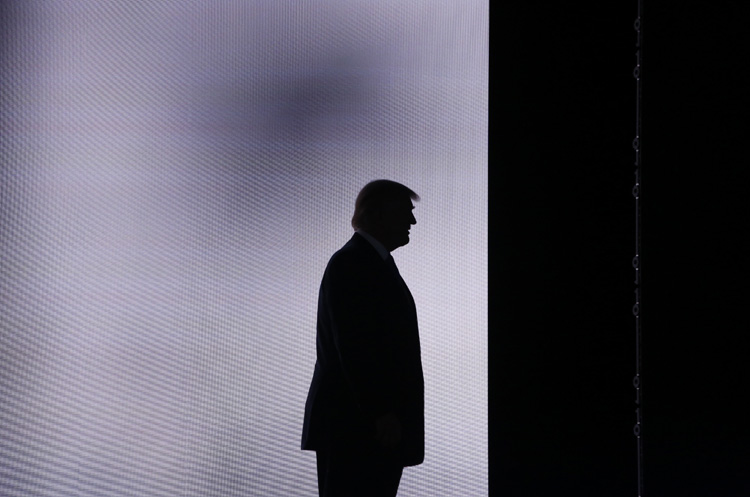U.S. president-elect Donald Trump’s victory was a surprise, and bank economists aren’t sure what it means or what comes next, reports from the major banks said Wednesday morning.

CIBC and BMO economists both saw the biggest concern as cross-border trade, given Trump’s strong protectionist positions on the campaign trail.
(Trump threatened to renegotiate or withdraw from the North American Free Trade Agreement between Canada, the United States and Mexico during his campaign, though he seemed to have Mexico in mind more than Canada.)
READ MORE: Reality check: Could Donald Trump pull the plug on NAFTA? It’s not as easy as he says
“Mr. Trump’s concerns about globalization are mostly focused on low-cost producers like China and Mexico, but tearing up NAFTA would leave Canada in a vulnerable position,” wrote CIBC World Markets economists Royce Mendes and Avery Shenfeld.
Canada and the U.S. could revert to a version of NATFA that leaves Mexico out, but U.S. protectionism could easily turn against Canadian exports.
“The election result clearly raises a lot of uncertainties for Canadian companies reliant on the American market.”
In a conference call Wednesday, BMO chief economist Douglas Porter called trade “probably the biggest area of concern from an economic standpoint.”
READMORE: Mexico begins laying groundwork for relationship with president-elect Donald Trump
“While Congress will try to blunt his worst impulses, it is an area where the president has a fair degree of power. He can impose temporary tariffs of up to 15 per cent, and he does have the power to pull out of some trade deals.”

Get breaking National news
“We’re going to take a wait-and see stance, and see whether his tough talk actually translates into real action.”
In a separate report, BMO Capital Markets predicted an upside for Canadian oil producers if the Keystone XL pipeline is approved, which seems more likely with Republican control of both houses of Congress and the White House.
The CIBC report took a bullish view of the defence sector and gold under Trump:
Defence could be boosted by increases in U.S. military spending and by other NATO countries feeling pressured to increase defence spending, the report predicted. (In fact, stocks in defence contractors like General Dynamics, Lockheed Martin and Boeing were up in morning trading Wednesday.)
Gold is “… looking like a big winner too, at least in the near-term.”
“Precious metals will see inflows as a result of their safe-haven status, that is until investors become more comfortable with this unexpected election outcome.”
READ MORE: What President Donald Trump will mean for Canada
“While the changes in policy might not be as drastic as the platform he ran on, this was an unexpected outcome and will likely lead to sharp movements in asset prices.”
Porter wasn’t willing to predict how a Trump presidency would affect markets on either side of the border.
“Clearly, the result was not what the market was looking for,” he said.
WATCH: The U.S. dollar sank and stocks have plummeted in market mayhem as investors faced up to a shock win for Donald Trump in the U.S. presidential election that could upend the global political order. Sonia Legg reports.

“In the past, we’ve seen many apparently extreme events that the markets react heavily to which have little or no economic impact on the overall environment. We believe that it’s extremely dicey to leap to conclusions about what the election means for the outlook at this early stage.”
After an initial shock as traders reacted to Trump’s presidential victory, which was not widely predicted, markets stabilized on Wednesday.
On the TSX Wednesday, gold companies were among the biggest gainers. Two of Canada’s biggest producers, Barrick Gold and Goldcorp, were up about three and five per cent.
Among the biggest losers were forestry and manufacturing companies dependent on cross-border trade, including several B.C. lumber producers and Ontario-based auto parts manufacturers.
Meanwhile, energy companies on the Toronto market were seeing an uptick because Republicans’ policies on oil are much more friendlier than those of the outgoing administration.
-With files from the Canadian Press


Comments